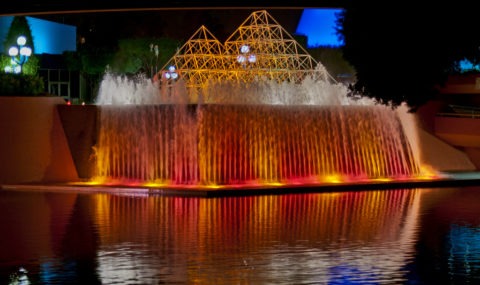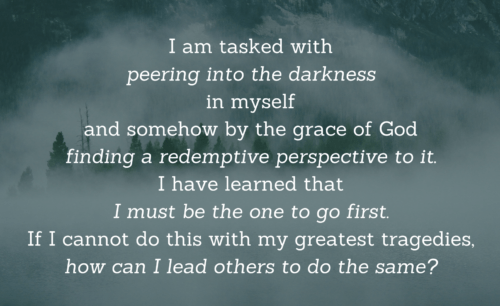“One of the biggest roles of science fiction is to prepare people to accept the future without pain and to encourage a flexibility of mind.” – Arthur C. Clarke
This month Star Trek: The Next Generation turns 30. (I know, this fact made me feel old too.) I can still remember as a kid watching Star Trek with my dad. I had no idea it was nerdy; it was just something we did. Much has changed in the last 30 years but science fiction of all kinds has been a constant thread in my life.
Science fiction is good for us. It gets us thinking creatively about the future and what could be. Star Trek specifically has influenced real life in fascinating ways: anyone who has opened a flip phone or experienced a needleless injection has Gene Roddenberry to thank.
Star Trek’s influence doesn’t stop with gadgets, either. The original Star Trek aired in 1966 with a multiracial and multiethnic cast. It was the first television show to feature a multiracial kiss. One of the main characters was portrayed by a Japanese American man who, at the age of five, was caught up in the Japanese internment during World War II. The USS Enterprise also featured a Russian on the bridge – right at the start of the Cold War.
Star Trek was bleeding edge social commentary at the time. It imagined a day where humanity made peace and came together for the common good. It might seem campy or cheesy now, but at its heart these stories are sincere.
I believe being optimistic and sincere is godly work.
There is, of course, the gibbering tentacle monster in the room. In the last few decades, popular tastes have shifted from the optimism of Star Trek and its relatives to the pessimism of the dystopia and the post-apocalypse. In these worlds, humanity has failed some great challenge and as a result, we have a scorched earth, a totalitarian regime, or zombies – sometimes all three.
Right now, dystopias are a box office smash. While the new Star Trek movies struggle to make their money back, movies like The Hunger Games and shows like The Walking Dead are incredibly popular. The new Star Trek show isn’t even on broadcast television – it’s available only on CBS’ paid membership website.
Somewhere along the line, the future went from fascinating to fearful. Audiences more readily buy a future where humanity is broken and messed up. Our future is no longer bright. In these stories, we cannot reach the stars.
Recently at a conference, science fiction writer Neal Stephenson discussed an essay he has written entitled, “Innovation Starvation.” In it, he laments that the world we live in was built on an infrastructure made in the 50s and 60s. We don’t dream big anymore.
Stephenson was confronted by a university professor who essentially said we stopped getting the big stuff done because writers like Stephenson stopped telling us we could. Creatives, artists, and dreamers were the ones slacking off.
Stephenson took this to heart and created Project Hieroglyph, a group whose purpose is to create science fiction that will spur innovation in science and technology.
So how can we look at this from a Christian perspective?
We certainly have our own pessimistic speculative fiction. We have an entire cottage industry that celebrates a persecution complex and predicts a violent end to the world. In this, we are no different than the larger culture. We are so drawn to pessimism because pessimism at the end of the day is easier. It is easier to look down than it is to look up.
Yet Christ calls us to be something different in the world, and I think it starts with how we feed our imaginations.
What we dream of has power. When we only imagine fears about tomorrow, tomorrow looks like something to be afraid of. Many of us don’t fear the future for any rational reason: we fear the future because we have been told that it is scary.
What if it doesn’t have to be?
As we approach 2019, the year when the original Blade Runner is set, I hope we realize that the world is not as bleak as we feared it would be. It has its problems – we still don’t have our flying cars – but there is still so much good – so much grace – in the world.
What do you believe about the arch of human history? Some Christians believe that the world is inevitably getting worse. Essentially, they believe that scarcity is our future. Ultimately, we won’t figure out our problems and we will fall so badly that God himself will have to save us again.
Other Christians believe that we have some agency in this. They believe that we have the God-given power, and therefore the responsibility, to make this world better, to bear the grace of God into it. Essentially, they believe that God has already saved us and that a more whole world can be made from the tragedies all around us.
I don’t know which side will ultimately be proven right. I do know which side I choose to be on. I know which one I am called to.
I want to spend my life imagining a better world for myself, my children, and the future of our species. I think regardless of how this ends, that is the sacred work Jesus is drawing us into.
Whatever happens, I look into the future wide-eyed and eager to see what unfolds. Will you join me?




 I love that Mary Oliver doesn’t minimize the darkness or throw up her hands and say it is God’s plan too early. People who haven’t dealt with their pain tend to do this. She lets it stay darkness but transforms her relationship to it from victim to victor. It is in this act that we become more than conquerors.
I love that Mary Oliver doesn’t minimize the darkness or throw up her hands and say it is God’s plan too early. People who haven’t dealt with their pain tend to do this. She lets it stay darkness but transforms her relationship to it from victim to victor. It is in this act that we become more than conquerors.